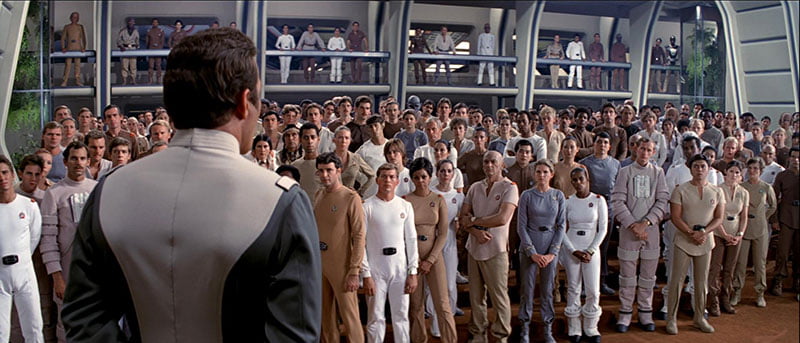At the beginning of the pandemic, Joe McCann wrote a speculative future piece called The New, New World Order (use a private tab if Medium paywalls you). Predicting the future or forecasting trends is never exact work, but Joe made some thought-provoking claims even if everything doesn’t pan out as predicted.
My favorite claim —and the one I still think about today— was the one about Cloud-work vs. Land-work. Dividing the labor force based on whether you work on the cloud or you work on the land is some sci-fi shit. A new dichotomy for a new era. I can already imagine cloud workers wearing silver jumpsuits and land workers wearing beige jumpsuits.

Jokes aside, I find Cloud-work vs. Land-work an innovative way to frame job types. It breaks away from the tired “blue collar” and “white collar” designations and speaks to the environmental and physical requirements of a job. To do this job, you need to be at a physical location. To do that job, you’re tethered to a computer most of the time. Land-work has you moving around, cloud-work is generally more sedentary work. It’s a broad categorization but seems more applicable than “farm” and “non-farm” jobs for example. And “cloud worker” is not as hoity-toity as “knowledge worker”, so that’s a plus.
I also find the Cloud-work vs. Land-work dichotomy helpful framing for labor issues; for example, who has taken the most risk during the pandemic? “Essential workers” (healthcare workers, emergency responders, food service, retail workers, delivery drivers, etc) tend to be land workers and are the ones who have to put their health at risk to keep the economy going. As a cloud worker in tech, I wasn’t greatly displaced by the pandemic and nearly all my inconveniences were because the land-based service I depend on (my kids’ school) was temporarily moved to the cloud. As someone who worked from home before the pandemic, my workdays were not too different, just filled with more dread and interruptions.
As companies start to force people back to the office, I find myself coming back to this Cloud-work vs. Land-work dynamic. Is collaboration on land that much better than on the cloud? Is it about removing distractions? Is it because the leadership is ineffective at managing cloud-workers? Is this a means of control and surveillance? Are hallway crossings the key to fostering innovation? What about the cloud-work job requires it to be land-work?
I don’t have those answers, I’m a cloud worker at heart and will probably do cloud-work the rest of my life. But I could see how land-work implies a level of human-to-human interaction and some people depend on that socialization for their well-being. That I could understand.